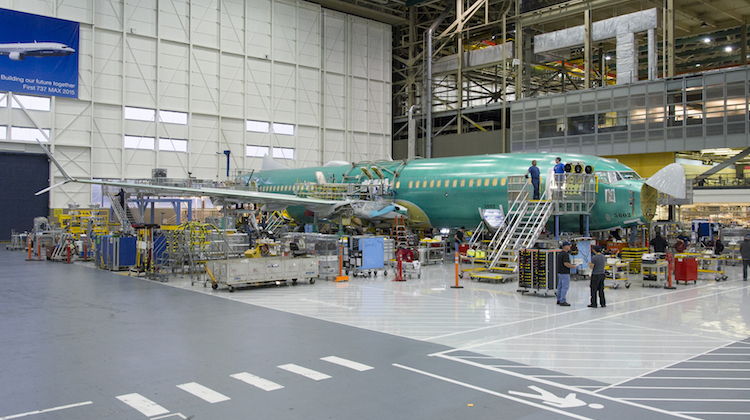
Boeing has met operators and lessors of the 737 MAX to offer assurances and lay the groundwork for resuming commercial flights, news agency Bloomberg reports.
The report, published on Wednesday (US time) said the meeting in Amsterdam on Tuesday was the first of about six sessions planned by Boeing around the world where executives would discuss how to maintain the aircraft that has been grounded following the Ethiopian Airlines and Lion Air crashes in March 2019 and October 2018, respectively.
Boeing spokesman Gordon Johndroe told Bloomberg the sessions would cover plans on how to “turn the fleet back on” once regulators cleared the MAX to fly.
Other discussions would focus on pilot training, software updates and a public campaign to bolster the jet’s damaged reputation.
“We know that we have a number of areas where we need to improve, including transparency,” Johndroe said.
“The decision to return the MAX to commercial service rests in the hands of global regulators.
“In anticipation of that day, we are meeting with our customers in regional conferences to talk through the activities to prepare the fleet and implement the software and training requirements.”
Boeing has been working on a software update to the Maneuvering Characteristics Augmentation System (MCAS) since shortly after the crash of a Lion Air 737 MAX 8 in October 2018.
The company has acknowledged the MCAS anti-stall feature was activated in response to erroneous angle of attack (AoA) information in both the Ethiopian Airlines and Lion Air tragedies, following the publication of the preliminary report into the Ethiopian Airlines accident.
Aviation regulators will have to certify the software before the MAX is cleared to resume commercial flights.
Meanwhile, the United States Federal Aviation Administration (FAA) said on May 3 its Joint Authorities Technical Review (JATR) team has held its first meeting to review the certification of the Boeing 737 MAX’s automated flight control system.
“Over the next few months, JATR participants will take a comprehensive look at the FAA’s certification of the aircraft’s automated flight control system,” the FAA said.
“Each participant will individually provide the FAA with findings regarding the adequacy of the certification process and any recommendations to improve the process.”
Chaired by former United States National Transportation Safety Board (NTSB) chairman Christopher Hart, the JATR comprised technical experts from nine civil aviation regulators from around the world, including the FAA and Australia’s Civil Aviation Safety Authority (CASA).
The FAA noted the JATR was “separate from and not required to approve enhancements for the return of the 737 MAX to service”.




